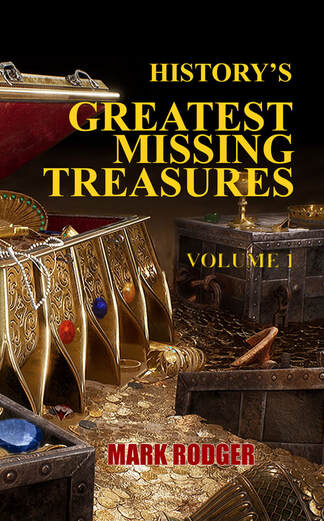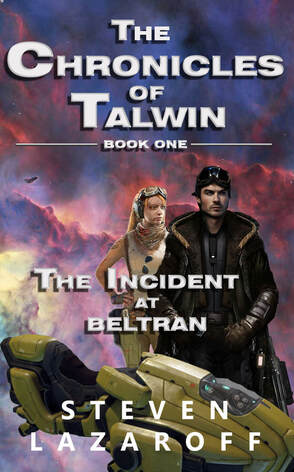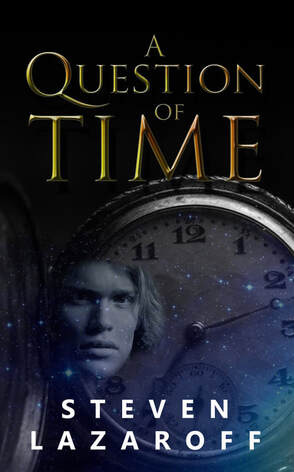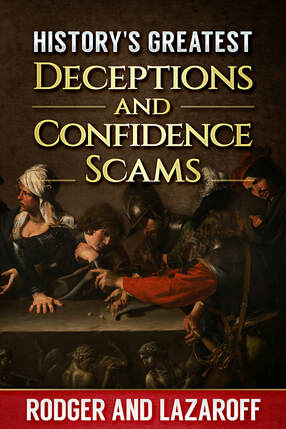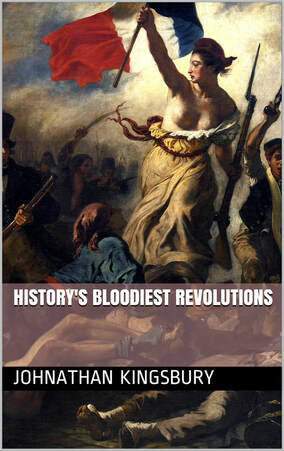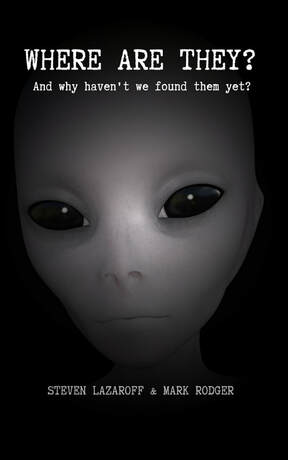Lost Treasure – these words evoke a familiar and exciting tingle in all of us. Some people imagine pirate chests, overflowing with gold coins and secretly buried on tropical sandy shores. Others think of jewels, priceless artwork or ancient sculptures that have been hidden away and are waiting to be discovered again. No matter what we think of, there is some special emotion that comes with the idea of finding treasure, and the prospect of instant and fabulous wealth suddenly changing our lives. Compared to the dream of winning a lottery, discovering a secret stash of gold just feels more exhilarating, isn’t that true?
Throughout history there have been many priceless artifacts and treasures that have been lost to us, and some may yet be found again. Somewhere, a museum’s stolen art collection valued at over $500 million is still hidden, the ancient library of a Russian Tsar is buried waiting to be read again and priceless Japanese sword taken during the closing days of the Second World War is still the subject of a world-wide search. Are they still out there?
Come along on a journey to explore some of history’s greatest and most valuable lost treasures, discover their stories, how they vanished from the world and where and how they might be found again…
What brings a man to the brink of despair and surrender?
When dark circumstances threaten to overwhelm him and his family, young Markus Talwin is forced to choose – lose all the people he loves the most or delve into the dangerous underworld of Beltran and forge a new destiny of revenge against a corrupt Galactic regime and the one man that rules it.
As he struggles to keep himself and his family alive he must face the true realities that govern the cosmos - no man can be good when he loses himself, not every ruler holds his peoples’ best interests at heart, and not every criminal is the monster that the law might make him out to be.
Talwin’s journey is not a search for glory or greatness – he knows that these cannot feed his starving family. Instead, his battle is a personal fight to live against all odds, to rise above a broken system, and to prove that one determined man can make a difference.
When dark circumstances threaten to overwhelm him and his family, young Markus Talwin is forced to choose – lose all the people he loves the most or delve into the dangerous underworld of Beltran and forge a new destiny of revenge against a corrupt Galactic regime and the one man that rules it.
As he struggles to keep himself and his family alive he must face the true realities that govern the cosmos - no man can be good when he loses himself, not every ruler holds his peoples’ best interests at heart, and not every criminal is the monster that the law might make him out to be.
Talwin’s journey is not a search for glory or greatness – he knows that these cannot feed his starving family. Instead, his battle is a personal fight to live against all odds, to rise above a broken system, and to prove that one determined man can make a difference.
What if one man could change history?
History professor Johnathan Lambert is on a business trip in the French countryside when his train enters a small tunnel containing a strange phenomenon – emerging from the other side without him and leaving him stranded in 17th century France.
Agent Nadeau, a veteran of the Central Directorate of the Judicial Police is tasked with the investigation of the missing passenger. But there's only one problem with the investigation. Johnathan Lambert doesn't exist, and Nadeau is faced with a difficult question. How do you find someone who doesn't exist?
Lambert wakes up to find himself displaced in time – somehow transported back to the reign of the last French King and Queen, Louis XVI and Marie Antoinette. How can a modern man survive in the past with only the clothes on his back and his wits, on the eve of the violence and turmoil of the French Revolution?
Can Lambert prevent the revolution? If he does - how is Agent Nadeau's modern world affected by the changes to the past?Follow the stories of these two men, one struggling to survive in the turbulent past, the other trying to track him down in the modern era, looking at clues to solve the disappearance of the missing passenger on the train.
History professor Johnathan Lambert is on a business trip in the French countryside when his train enters a small tunnel containing a strange phenomenon – emerging from the other side without him and leaving him stranded in 17th century France.
Agent Nadeau, a veteran of the Central Directorate of the Judicial Police is tasked with the investigation of the missing passenger. But there's only one problem with the investigation. Johnathan Lambert doesn't exist, and Nadeau is faced with a difficult question. How do you find someone who doesn't exist?
Lambert wakes up to find himself displaced in time – somehow transported back to the reign of the last French King and Queen, Louis XVI and Marie Antoinette. How can a modern man survive in the past with only the clothes on his back and his wits, on the eve of the violence and turmoil of the French Revolution?
Can Lambert prevent the revolution? If he does - how is Agent Nadeau's modern world affected by the changes to the past?Follow the stories of these two men, one struggling to survive in the turbulent past, the other trying to track him down in the modern era, looking at clues to solve the disappearance of the missing passenger on the train.
Throughout history, there have always been fraudsters and tricksters ready and willing to part people and their money with smooth talking and tall tales, but the first formally recorded “confidence trick” was uniquely American in its origins and set the bar for both simplicity and sheer guts, both hallmarks of the most successful frauds ever perpetrated.
A study of the modern revolutions that have marked human history, their causes and inevitable outcomes. Join the author as he takes you on a ride throughout the pivotal moments that make up History's bloodiest revolutions.
Does Alien life exist out there? The purpose of this book is not to take one side or the other in that argument. It is to explore the present state of knowledge and to say where humanity now stands on the question of whether or not we are alone in the universe. Because there isn't the slightest doubt: that is a question that has occupied humans since they became human, and it's a question that shows no sign of going away.
And if there are intelligent beings elsewhere in the universe - where are they?
Warriors – evolved from the earliest hunter classes, they have become specialists in the art of enforcing social order through violence and projecting power at all levels of society’s hierarchies from the dawn of time.
Often associated with the most prestigious classes of human society, they have manifested the political will of chieftains, lords, kings and emperors through the whole of human history. Tasked with accomplishing brutal acts, incredible feats of self-sacrifice as well as heroic deeds, they were often richly rewarded or were just as easily forgotten.
On any battlefield, valor and glory can be found as easily as death and the warrior elite have always been there – fighting for their cause, their leader or their people. They have been both the attackers and the defenders, both the regime and the rebels, the invader and the invaded – and they have always been with us.
Join the author as he goes on a journey of discovery to explore some of the greatest fighting names of ancient history from around the globe, exploring how they lived, died and how they found everlasting fame as History’s Greatest Warriors.
We highly recommend
A seminal story about the history of Humankind. This book is a great narrative that builds up nicely. Puts all the pieces together in a style that is easy to follow and fascinating to digest. It very succinctly summarizes mankind's collective journey from the birth of humanity, through successive 'quantum' leaps as fire, speech, art, agriculture, towns, class separation, religion, industrialization, science, social engineering and biological design transform us from hunter gatherers to mostly urban dwellers. It is highly readable, all while fostering deep reflection on the future of humanity.
The book provides the best possible explanation for the ultimate causes of the fates of human societies throughout the human history. Anyone who wants to understand those causes should read this Jared Diamond's masterpiece. It turns out that guns, germs, and steel are more proximate causes of the fates. The ultimate causes, which are much more complicated and involves areas as geography and agriculture, are explained in details by the author throughout. Definitely, one of the best books we've ever read.
Jared Diamond combines numerous fields in his exploration for why societies collapse. The chapters on the Greenland Norse and Hispaniola contrasting Haiti and Dominican Republic provide fascinating past and present examples for how environmental issues can drive societies to economic misery, decline and collapse. Diamond provides many other examples, including a discussion on Montana's environmental and social challenges to start the book. Environmental challenges we face today are solvable and controllable by human populations. History provides us lessons we can apply to today's policies. Great read if you're interested in environmental history and how environmental problems drive economic and political instability.
Elizabeth Kolbert's book won the Pulitzer Prize for General Nonfiction in 2015. It's hard to imagine a more deserving winner. Far from a dry scolding on the evils and perils of global warming, Kolbert's book is instead a rollicking, engaging travelogue, bringing together far-flung disparate threads into a cohesive whole. And that whole make abundantly clear that "one weedy species" -- what Kolbert calls this current extinction's "novel cause" -- is behind such pieces of art as the rapid destruction of the world's great coral reefs, ocean acidification and 10x-speed undoing of the last vestiges of the ice age.
Read these books with a Kindle from Amazon
Now available in black or white
Higher resolution display (300 ppi) - with twice as many pixels
Built-in adjustable light - read day and night
No screen glare, even in bright sunlight, unlike tablets
A single battery charge lasts weeks, not hours
Massive selection, low prices - over a million titles $2.99 or less
Prime members read free with unlimited access to over a thousand titles
Higher resolution display (300 ppi) - with twice as many pixels
Built-in adjustable light - read day and night
No screen glare, even in bright sunlight, unlike tablets
A single battery charge lasts weeks, not hours
Massive selection, low prices - over a million titles $2.99 or less
Prime members read free with unlimited access to over a thousand titles

